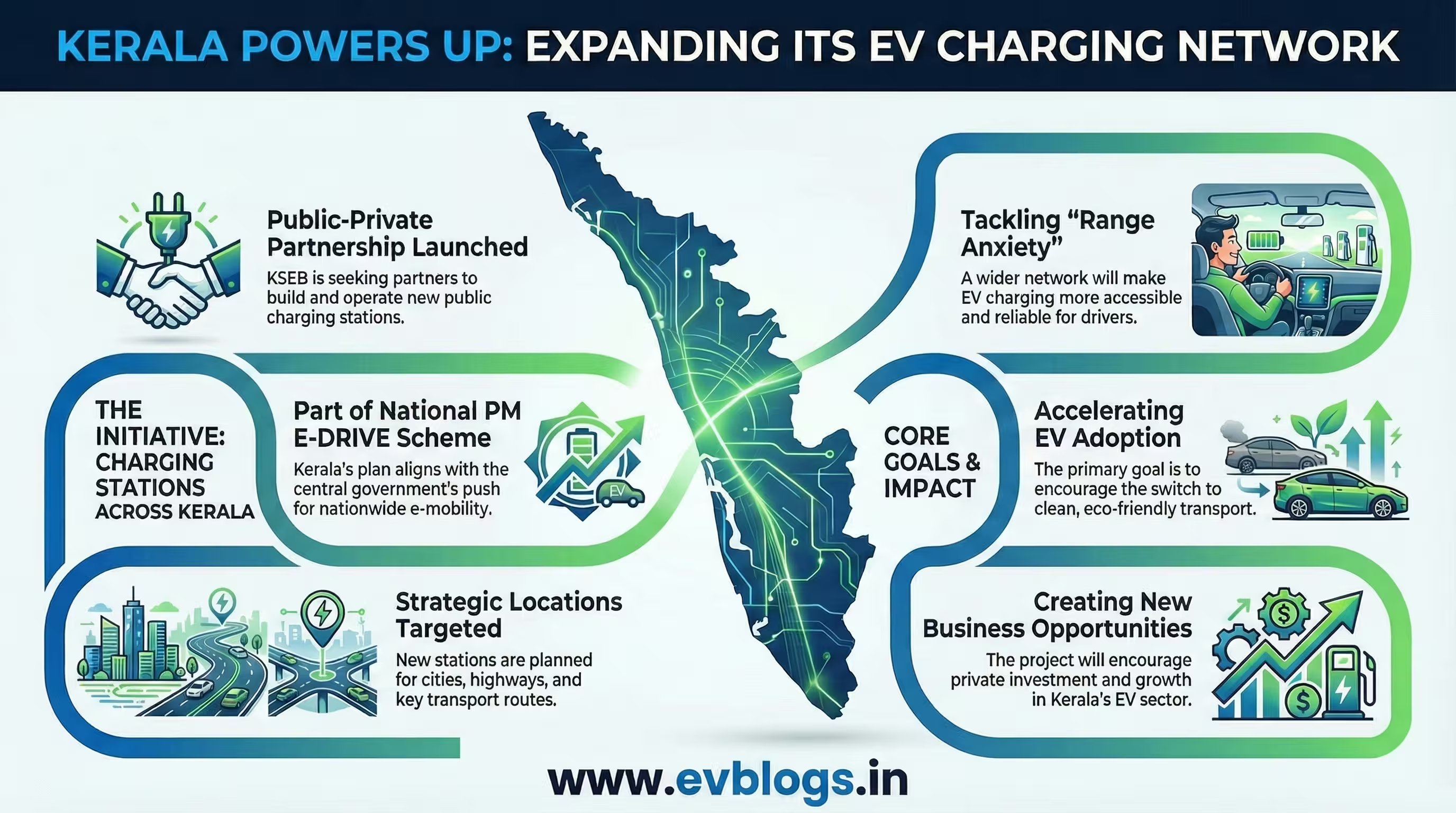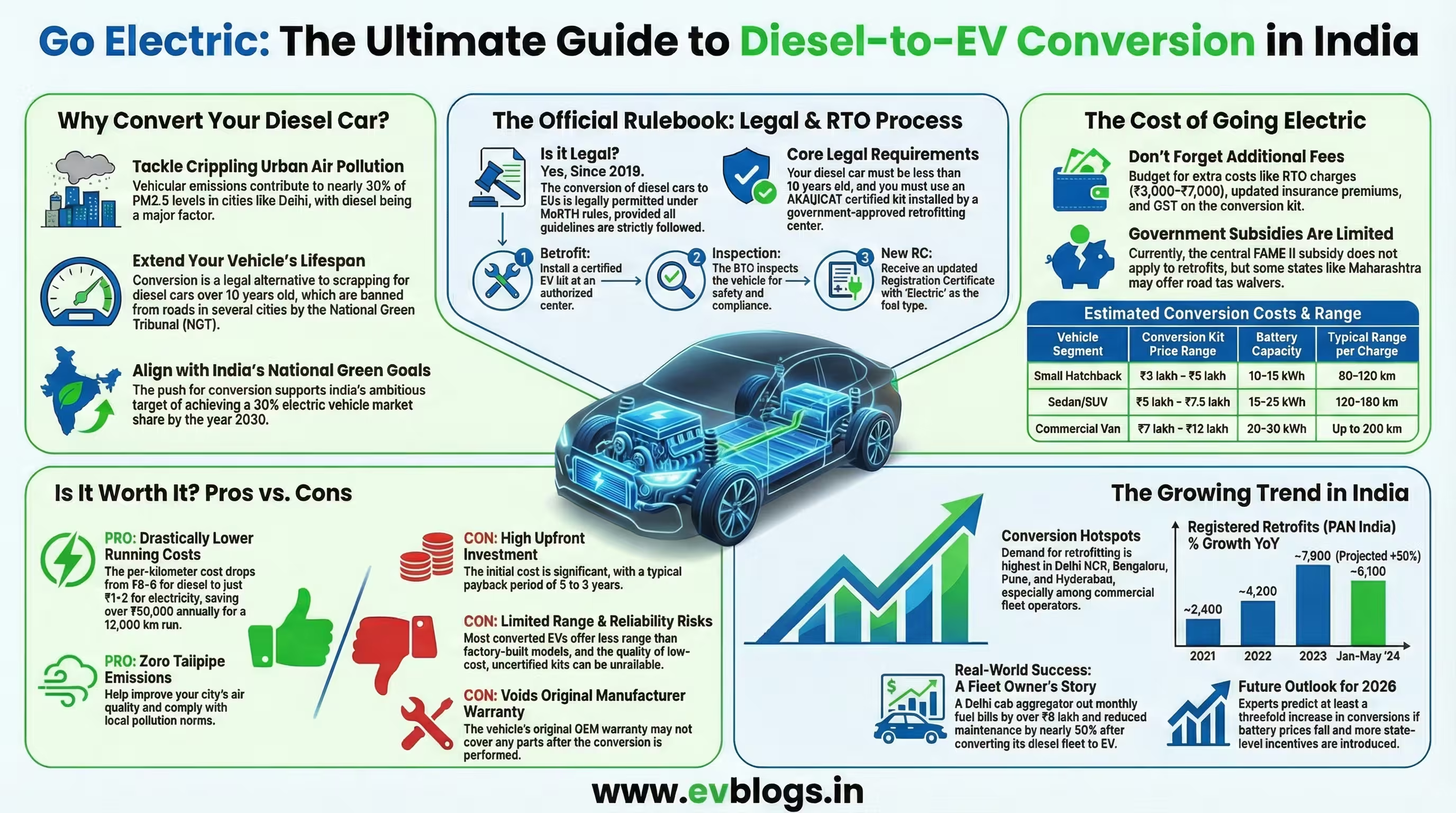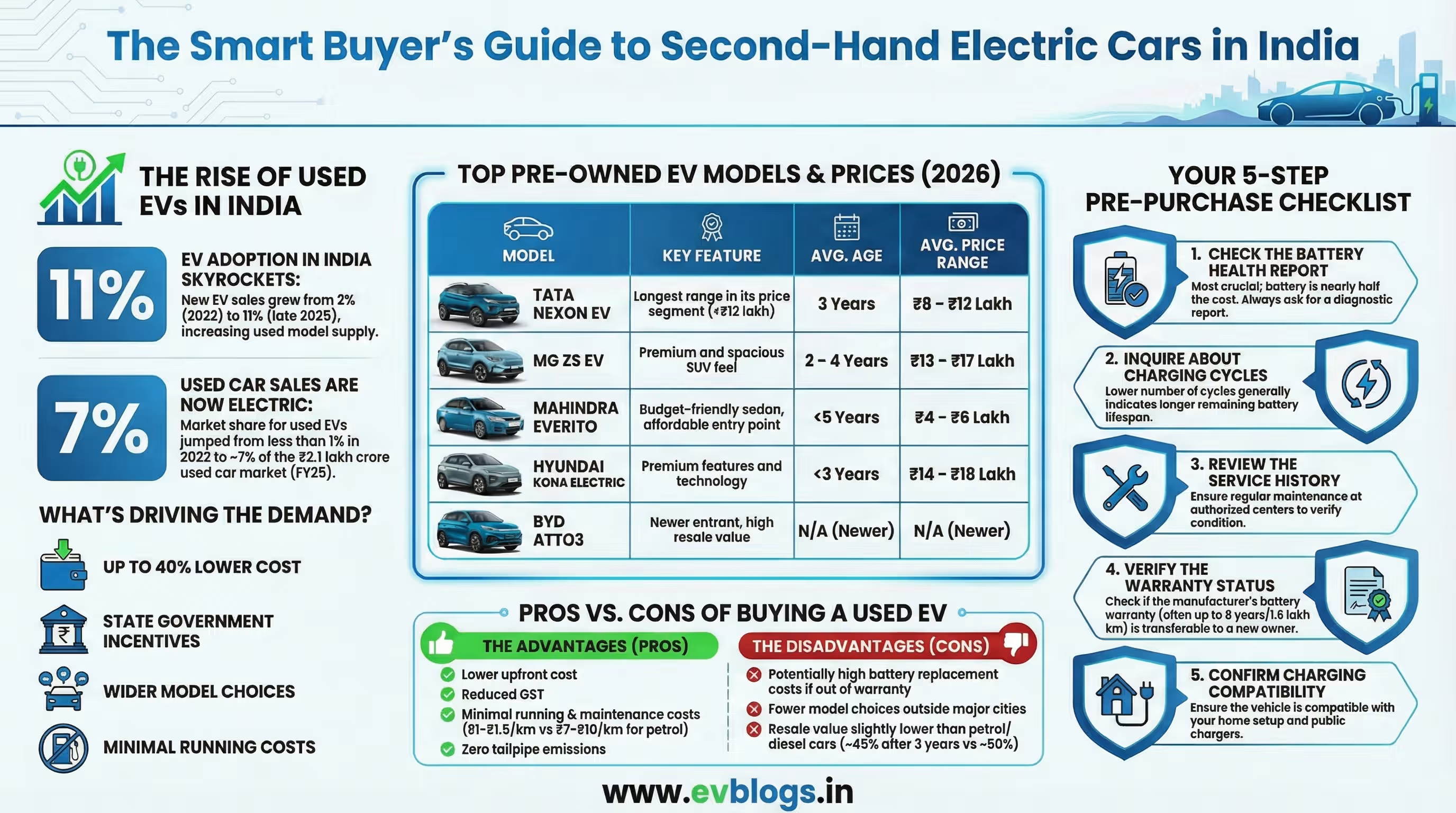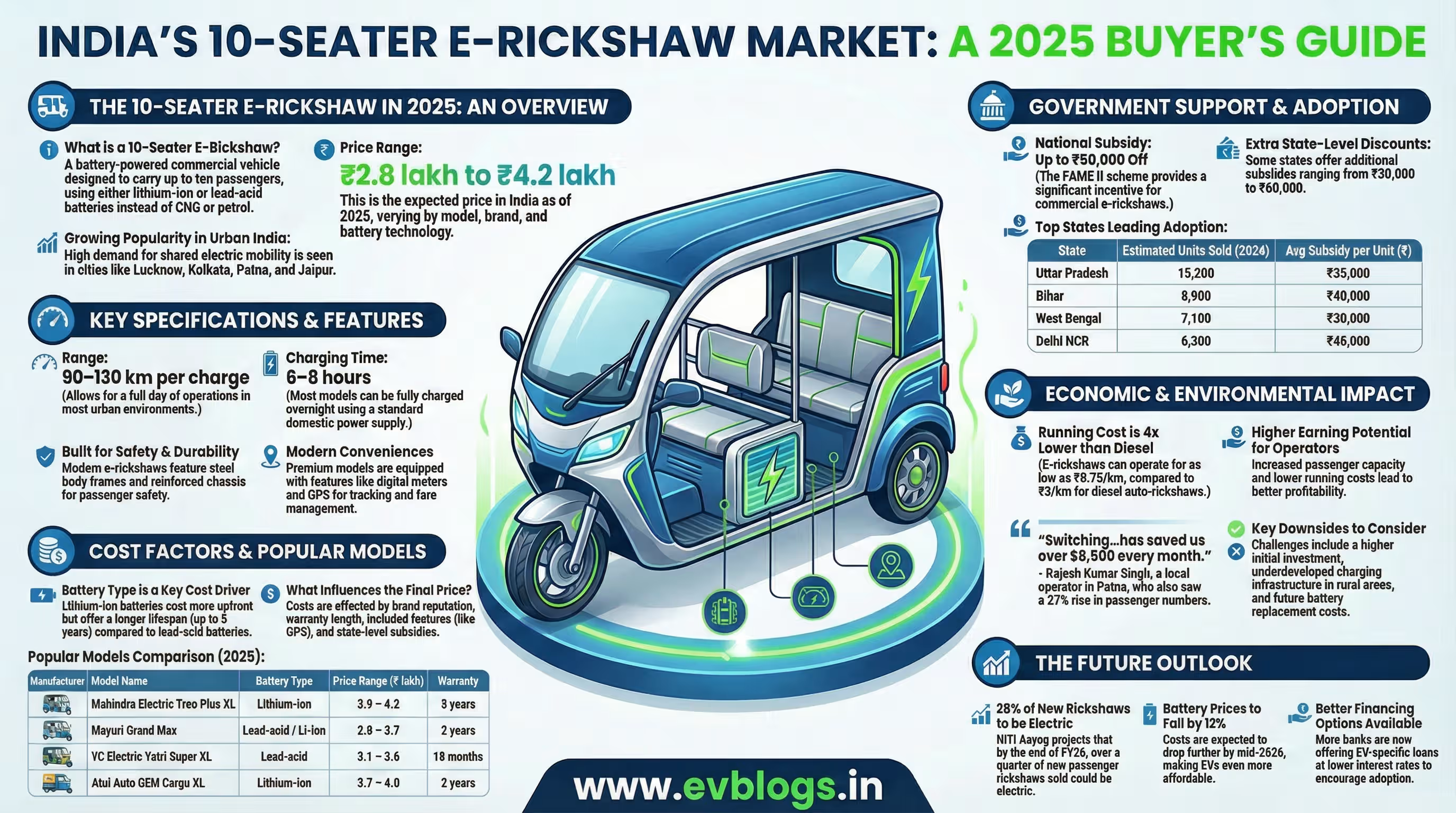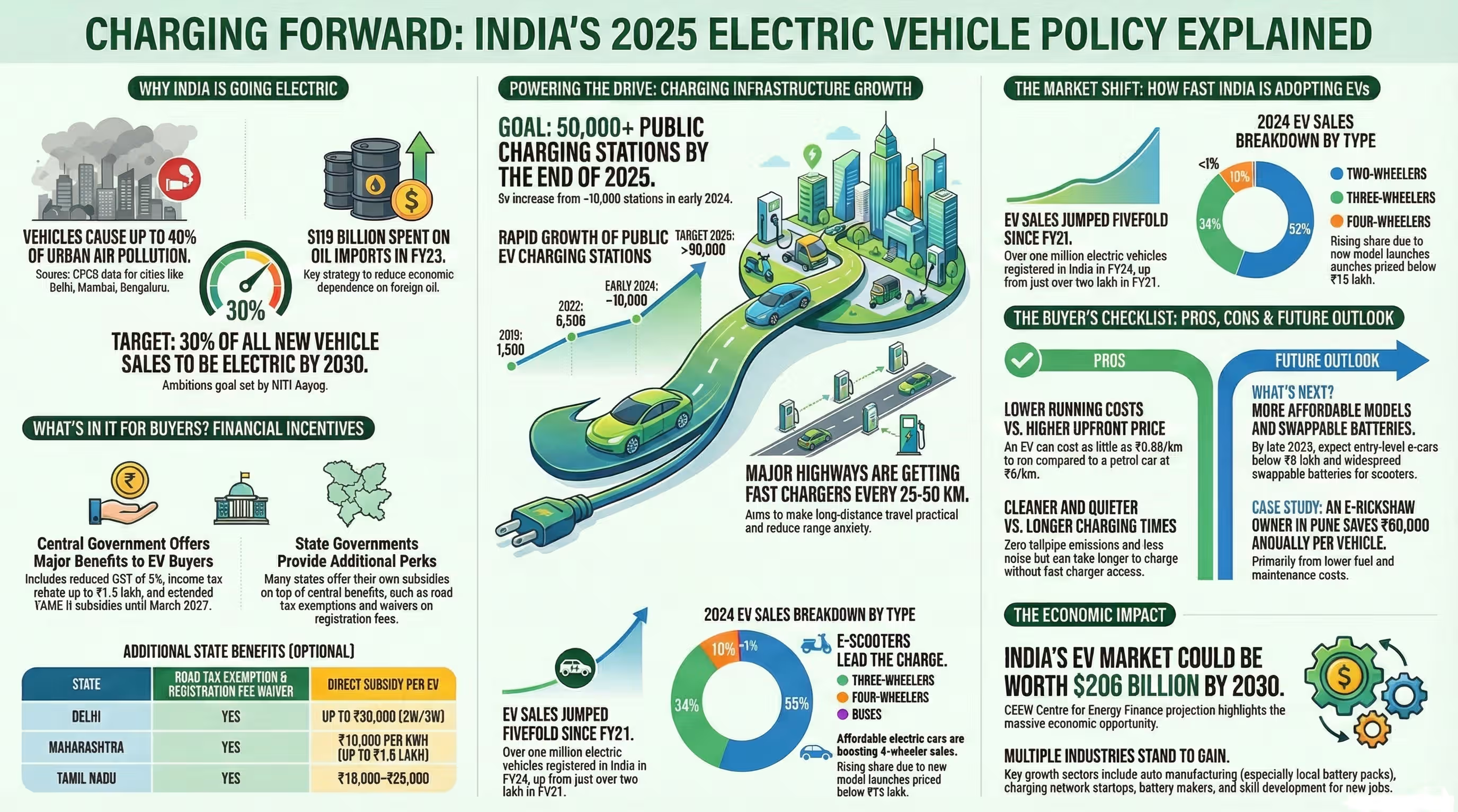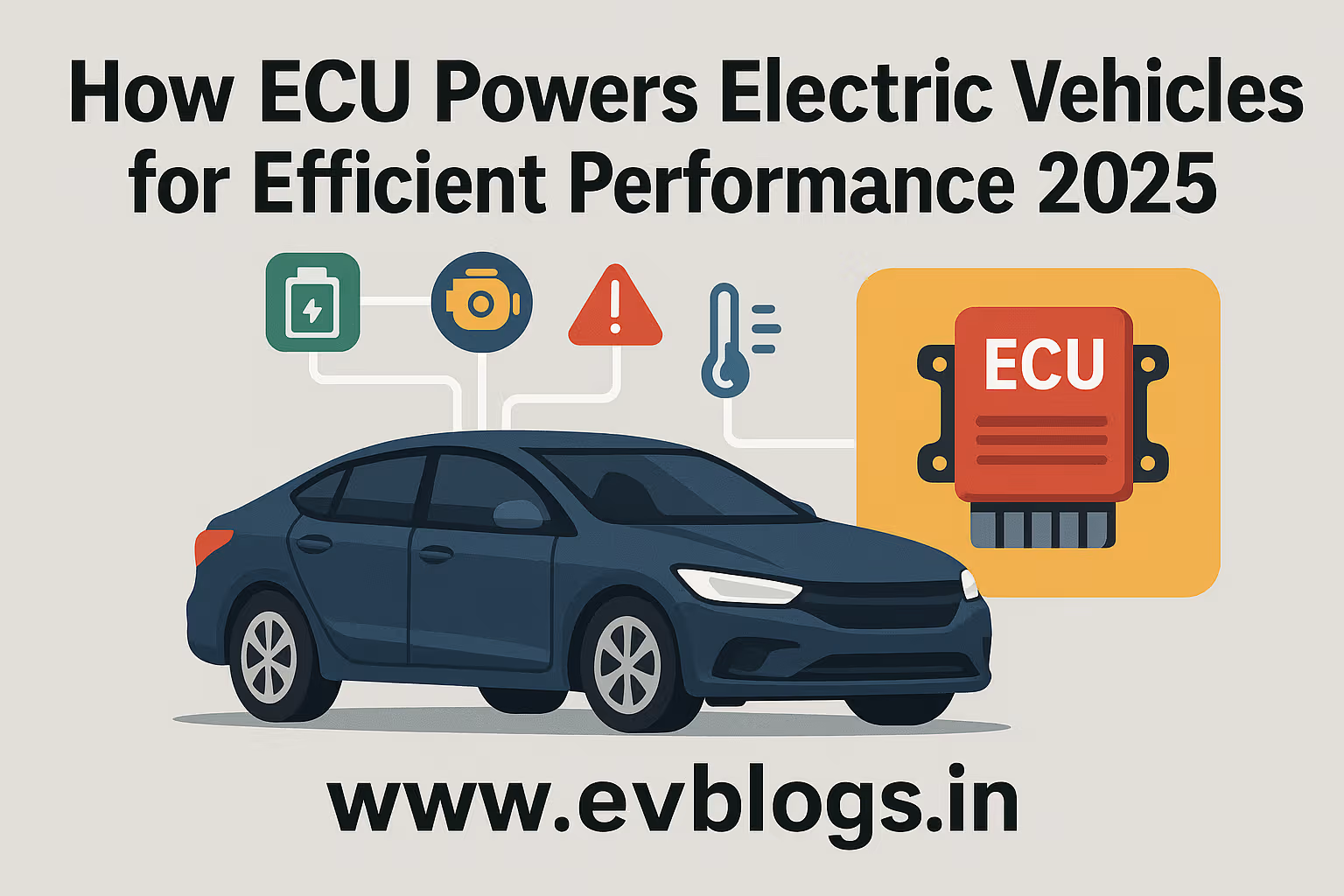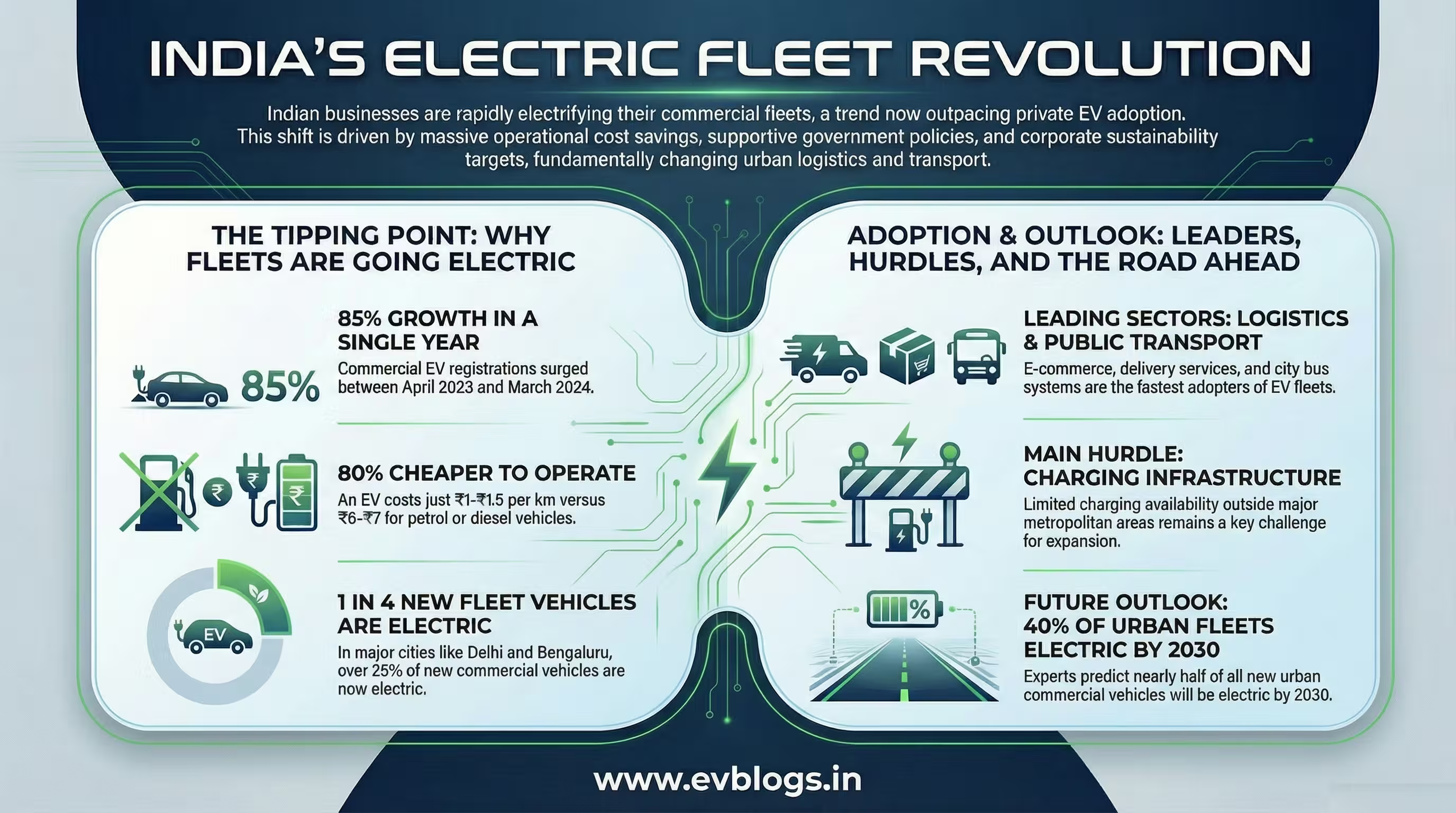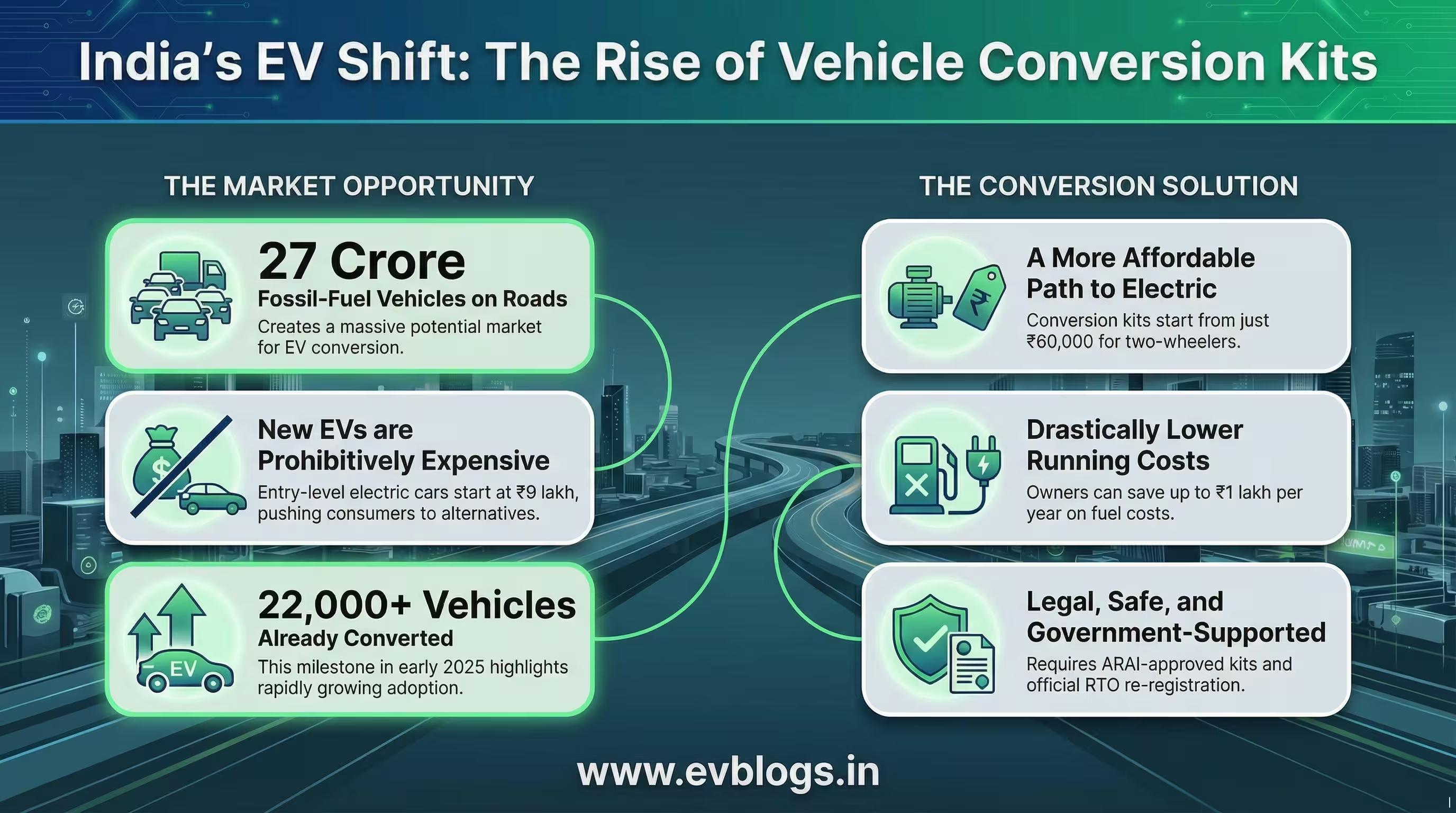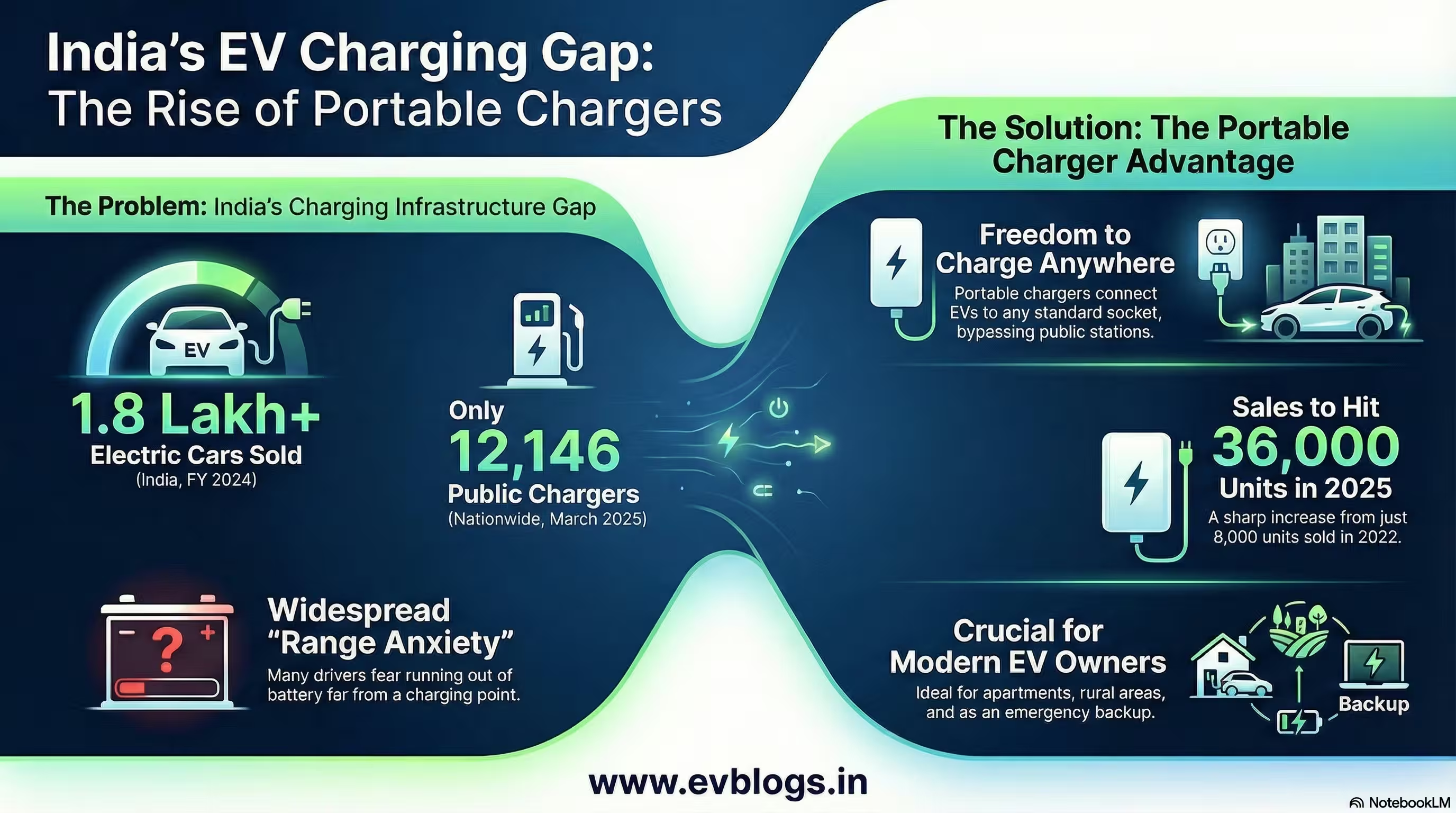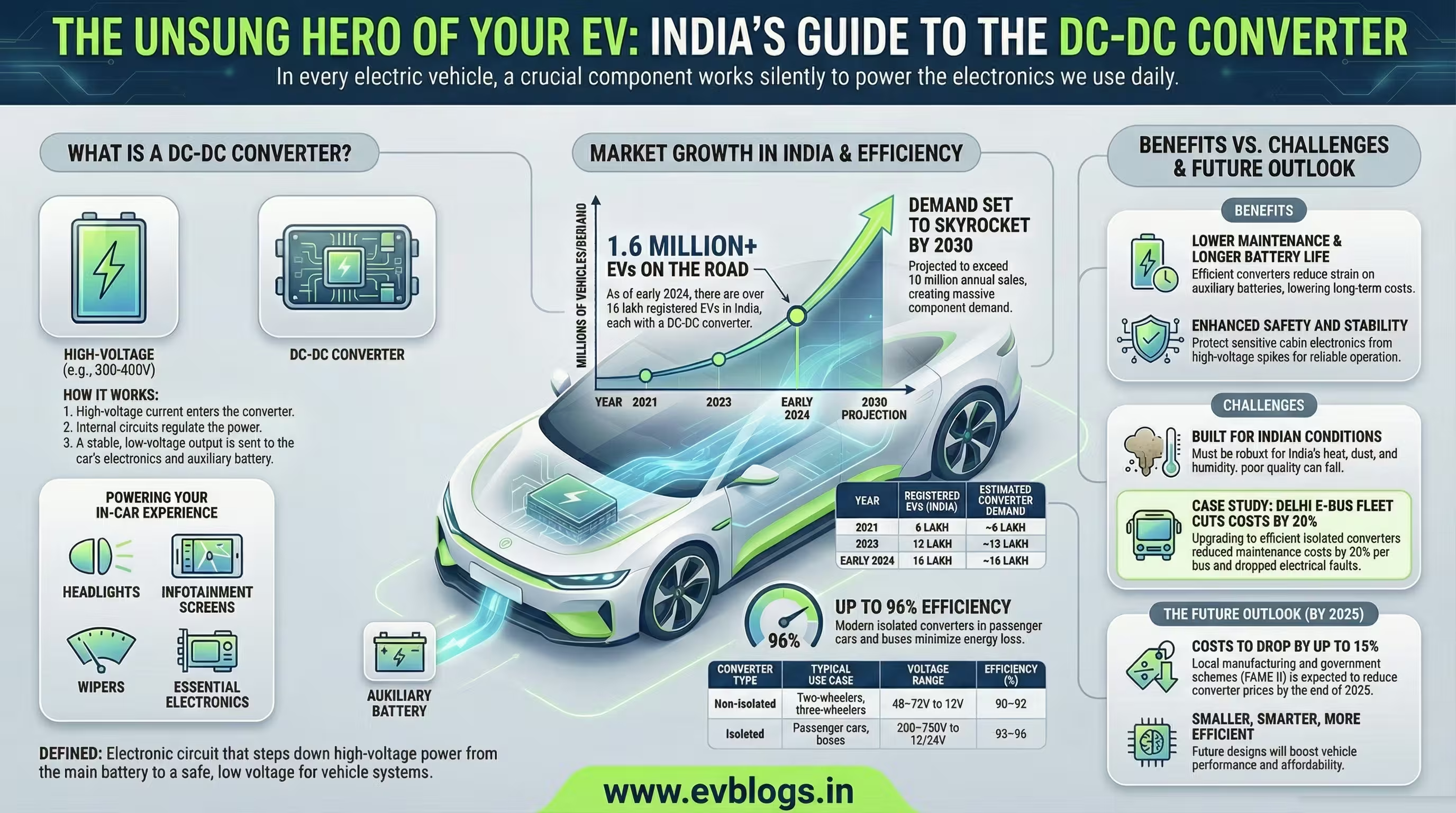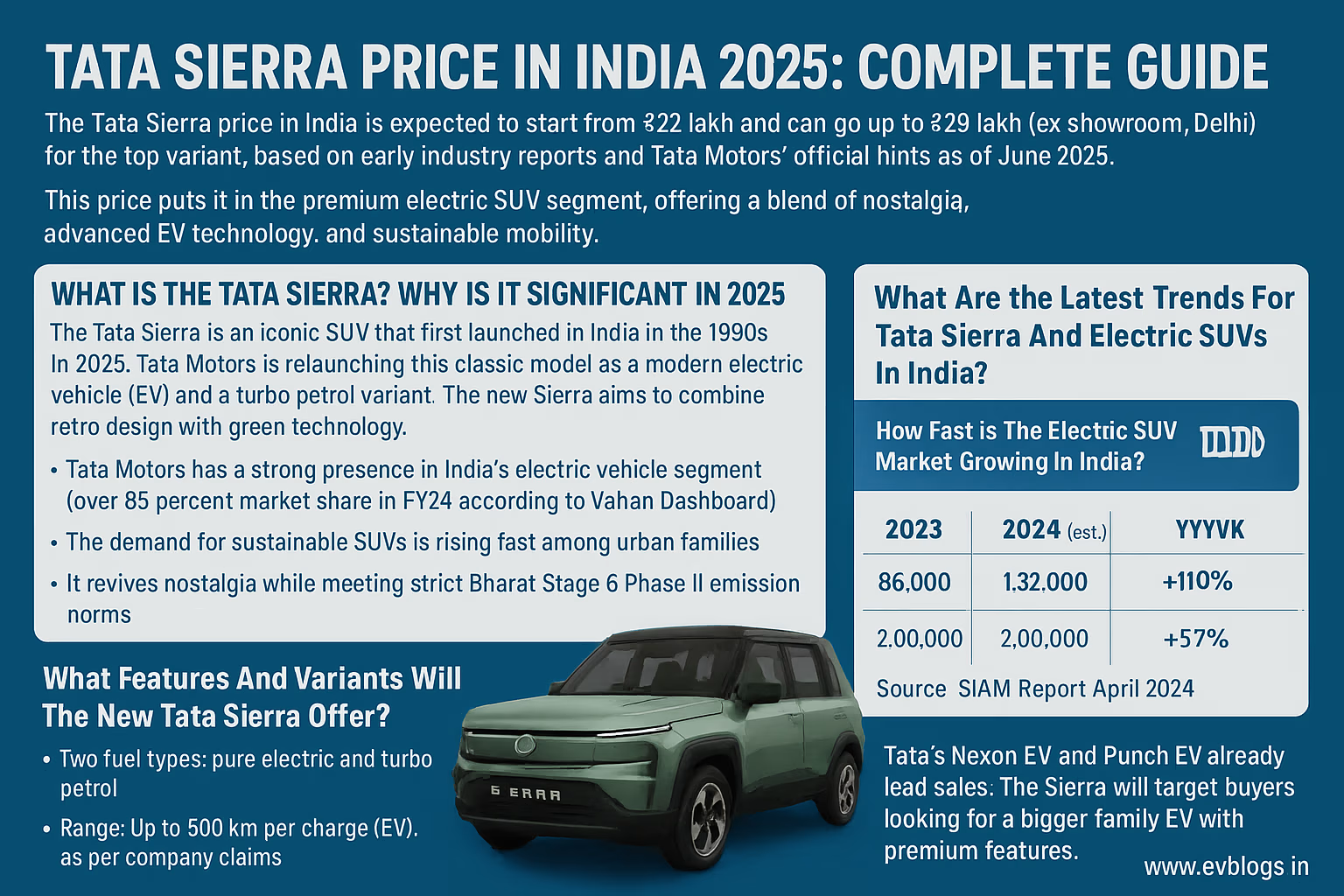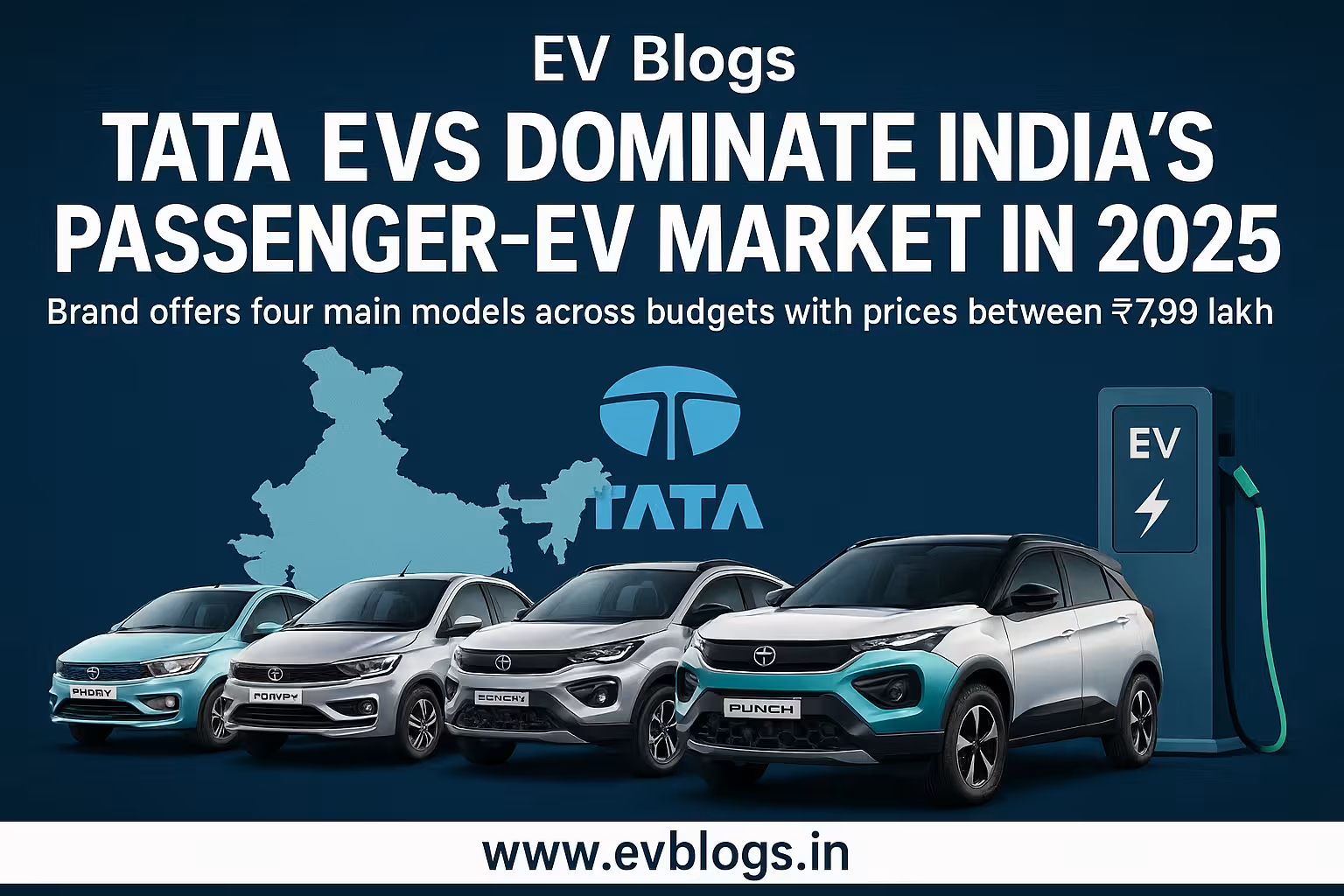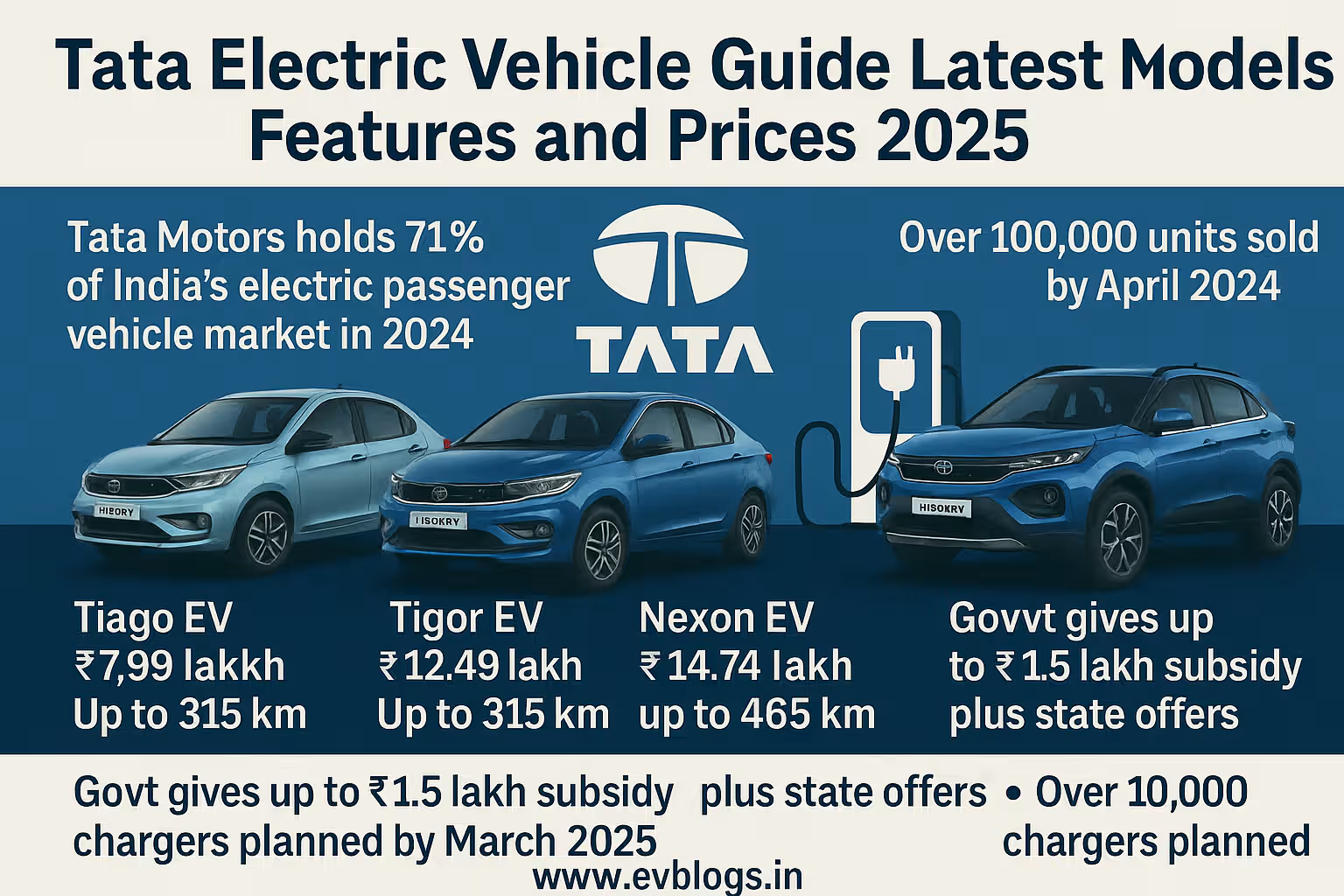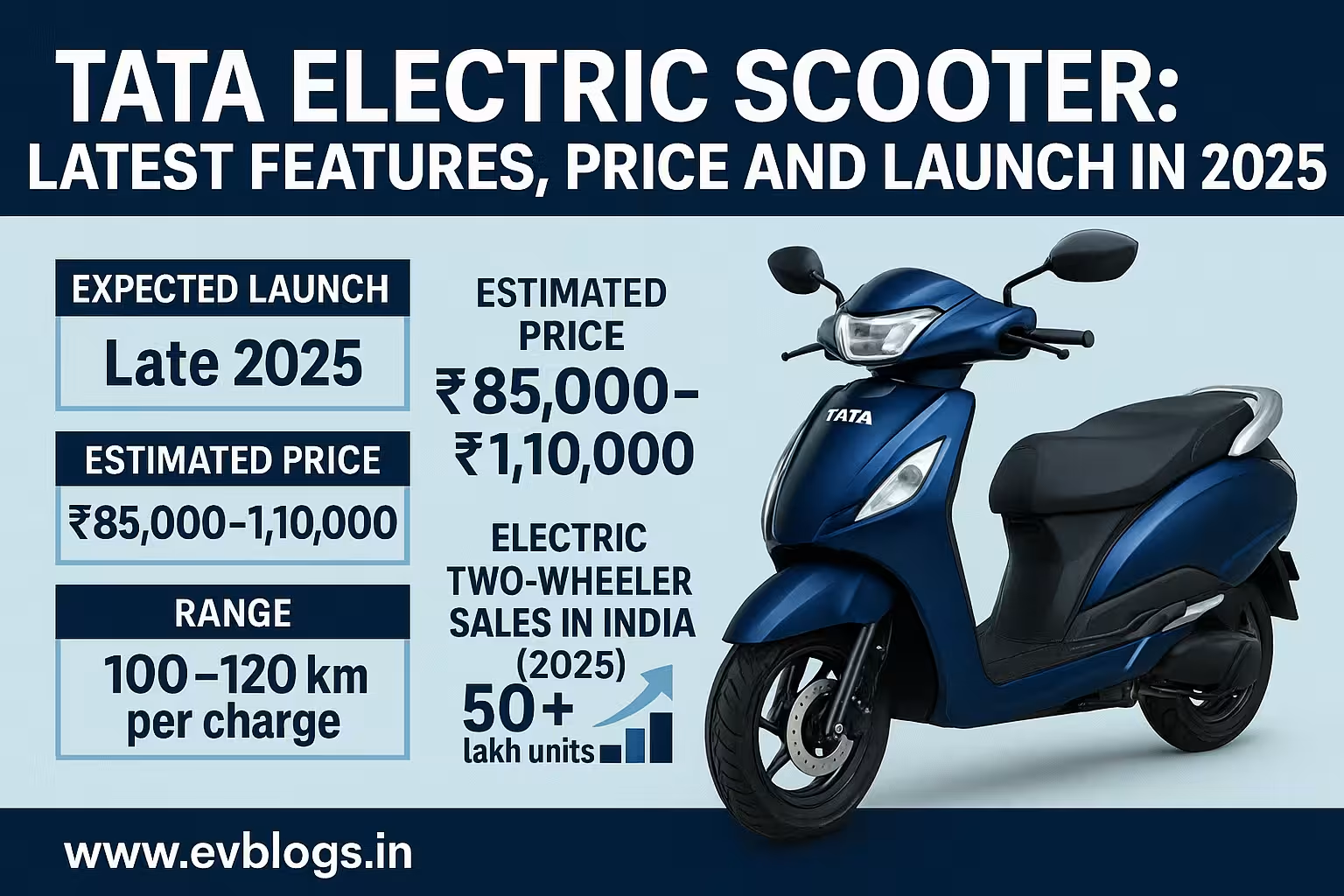Hedhvick Hirav
Hedhvick Hirav is a dedicated EV researcher and editor with over 4 years of experience in India’s growing electric vehicle ecosystem. Their contributions have been recognized in leading sustainability publications and automotive journals.
Summarize & analyze this article with
Choose an AI assistant and open this article directly:
Tip: if the AI doesn’t fetch the page automatically, paste the article URL manually.
Top 10 EV Charger Manufacturers in India 2025
As India accelerates toward a green mobility future, the Top 10 EV Charger Manufacturers in India 2025 are pivotal to powering this transformation. These companies dominate the rapidly expanding Indian EV charging infrastructure, leveraging innovation, reliability, and scale. According to the Ministry of Heavy Industries (MHI), the number of public EV charging stations in India crossed 12,500 by March 2024—a jump of over 250% since 2022. With government incentives under FAME II and surging electric vehicle (EV) adoption—projected at a CAGR of 36.4% till 2030 (Statista, 2024)—choosing the right charger manufacturer is more relevant than ever. This article profiles the top Indian EV charger makers for 2025, backed by updated data, real-world examples, and actionable insights.
Why Are EV Charger Manufacturers Critical in India’s 2025 Mobility Landscape?
What Drives the Need for Advanced EV Charging Solutions?
India’s electric vehicle ecosystem is witnessing exponential growth. In FY24 alone, EV sales crossed 1.7 million units (Vahan Dashboard, April 2024)—a record high and up nearly 55% from FY23.
Yet, mass adoption hinges on accessible, reliable charging networks. Here’s why:
- Range Anxiety Reduction: Wide charging coverage assuages consumer concerns about running out of charge.
- Grid Optimization: Smart chargers balance loads and integrate renewables.
- Economic Growth: The sector is projected to create over 50,000 jobs by end-2025 (NITI Aayog estimate).
- Climate Targets: Chargers support India’s aim to reach net zero by 2070.
How Did We Select the Top 10 EV Charger Manufacturers in India for 2025?
Our ranking reflects:
- Market Share & Presence: Number of installations, pan-India footprint
- Technology Leadership: Fast/ultrafast DC chargers, software integration
- Quality & Reliability: Uptime rates; safety certifications
- Customer Support: After-sales service networks
- Sustainability Initiatives: Green manufacturing, renewable integration
- Government Partnerships & Approvals
Data sources include MHI reports (April 2024), Statista market studies (2024), company disclosures (FY24), and industry surveys.
Top 10 EV Charger Manufacturers in India 2025 [Ranked]
Let’s explore the leaders shaping India’s EV charging revolution.
| Rank | Manufacturer | No. of Chargers Deployed (FY24) | Key USPs | Notable Partnerships |
|---|---|---|---|---|
| 1 | Tata Power EZ Charge | 6,400+ | Largest network; fast DC | IOCL, HPCL |
| 2 | Delta Electronics India | 2,800+ | High-speed DC chargers | MG Motor |
| 3 | Exicom Tele-Systems | 2,000+ | Battery-integrated; software-driven | BluSmart |
| 4 | Fortum Charge & Drive | ~1,900 | Smart app ecosystem | MG Motor |
| 5 | ABB India | ~1,700 | Ultrafast global tech | Kia Motors |
| 6 | Magenta ChargeGrid | ~1,500 | Solar-powered solutions | Mahindra Electric |
| 7 | Okaya Power Group | ~1,350 | AC/DC combo chargers | Hyundai |
| 8 | Statiq | ~1,200 | App-first user experience; modularity | Hero Electric |
| 9 | ChargeZone | ~1,100 | Highway corridor focus | Gujarat Govt |
| 10 | EVI Technologies | ~950 | Urban micro-charging | Delhi Govt |
(Source: Company Annual Reports FY24; MHI Public Charger Data April’24)
#1 Tata Power EZ Charge: How Has It Become India’s Largest Network?
Tata Power leads with over 6,400 public and semi-public chargers as of early 2025—covering highways and cities alike. Their dominance stems from:
- Strategic alliances with major oil marketing companies (IOCL/HPCL)
- Rapid rollout of ultra-fast DC chargers (up to 150 kW, CCS/CHAdeMO standards)
- Integrated mobile app for payments and booking
- In-house R&D reducing downtime below industry norm (>98% uptime)
Real Example:
In Mumbai alone (Q1 FY25), Tata Power deployed over 200 new fast chargers, supporting both private users and taxi fleets.
#2 Delta Electronics India: What Sets Their Technology Apart?
A global leader with a strong Indian base since the late ’90s:
- Over 2,800 fast and regular chargers installed in metros and Tier-II cities
- Offers rapid DC chargers (30–120 kW) with modular architecture
- Focus on commercial fleets—partnered with MG Motor for dealership networks
Case Study:
Delta’s deployment at Hyderabad airport slashed average vehicle turnaround time by 38%, according to client data shared in November ‘24.
#3 Exicom Tele-Systems: How Are They Innovating for Fleets?
Exicom powers multiple ride-hailing fleets via:
- Smart battery-integrated charging systems
- IoT-based monitoring for predictive maintenance
- Over 2 GW hours energy dispensed by their network till date
Their technology enables fleet operators like BluSmart to optimize costs—up to 18% reduction per km, according to a NITI Aayog-funded pilot report (January ’25).
#4 Fortum Charge & Drive: What Makes Their User Experience Unique?
Fortum brings Scandinavian efficiency to Indian roads:
- Intuitive app-first platform with real-time charger status
- Plug-and-play hardware supporting all major vehicles
- Focus on green energy sourcing—over 40% solar-powered sites
Example:
In Gurgaon Cyber City hub alone (Dec ‘24), Fortum handled an average of 220 daily sessions, with customer satisfaction scores >92%.
#5 ABB India: How Do They Deliver Global Fast-Charging Standards?
Swiss giant ABB leverages its international expertise via its Indian arm:
- Supplies high-speed (>180 kW) DC chargers for highway corridors
- Modular design ensures scalability for future battery technologies
- Partners with OEMs like Kia Motors for dealer-level rollouts
ABB’s “Terra” series was among the first certified under BIS safety guidelines revised in late ‘24.
#6 Magenta ChargeGrid: Are Solar-Powered Chargers Gaining Traction?
Magenta stands out as a cleantech pioneer:
- Integrates solar generation at over half its urban sites
- Launched “ChargeGrid Xpress”—a compact charger suited for retail stores & malls
- Won government contracts under FAME II Phase II
Case Study:
In Pune municipal area (Feb ‘25), Magenta’s hybrid solar grid reduced grid electricity use by 32% annually, per their sustainability report.
#7 Okaya Power Group: Why Choose Their AC/DC Hybrid Chargers?
Okaya delivers versatility across formats:
- Mix of AC slow/medium chargers and high-capacity DC units
- Robust after-sales support via pan-India service centres
- Preferred partner for Hyundai dealerships since early ‘23
They reported <2% downtime across their entire network during peak summer loads in FY24.
#8 Statiq: What Is Their App-Led Approach Offering Consumers?
Founded by IIT alumni:
- Proprietary app lists real-time availability across their network
- Modular hardware supports “plug-n-play” expansions
- Focuses on urban convenience—office parks/hotels/residential complexes
Statiq processed over 300K charging sessions in Q4 FY24 alone—a record among startups.
#9 ChargeZone: How Are They Powering Intercity Travel?
Gujarat-based ChargeZone excels at highway connectivity:
- More than 500 highway fast-charging stations along Golden Quadrilateral routes
- Dynamic load balancing reduces wait times during peak hours
- Collaborates closely with state governments
According to NITI Aayog’s January ’25 survey, ChargeZone enabled a >22% increase in long-distance EV travel between Ahmedabad–Mumbai within six months post-deployment.
#10 EVI Technologies: Are Micro-Charging Hubs Solving Urban Challenges?
EVI specializes in compact charging points ideal for dense cities:
- Kiosk-style solutions for parking lots/apartments/hospitals
- Integrates UPI/BHIM payment options natively
Delhi government cited EVI as a key contributor in achieving 90% ward-level charger penetration by March ’25.
Data Table: Major Player Performance Comparison [FY24]
Here’s how leading manufacturers stack up on key metrics relevant to buyers/investors:
| Manufacturer | Uptime % | Fast Charging (>50 kW) Sites (%) | Customer Satisfaction (%) |
|---|---|---|---|
| Tata Power EZ Charge | >98 | ~64 | >91 |
| Delta Electronics | >97 | ~77 | >88 |
| Exicom Tele-systems | >97 | ~70 | >89 |
| Fortum Charge & Drive | >96 | ~65 | >92 |
| ABB India | >99 | ~80 | >90 |
| Magenta ChargeGrid | >95 | ~54 | >86 |
(Source: Company annual sustainability reports FY24; Customer survey data - CII Mobility Panel April’25)
Trends Shaping the Indian EV Charging Industry in 2025
How Fast Is Market Growth Projected For Charging Solutions?
According to Statista’s “EV Infrastructure Outlook – India” released February ’25:
- The public EV charger market is projected to reach INR 3,800 crore by end–2025.
- CAGR from FY21–FY25 stands at an impressive 42%.
- Over 70% of new residential societies launching post-January ‘25 offer pre-installed community charging points.
- Fleet-focused rapid charging segment grew 62% YoY between Q1 ‘24–Q1 ‘25.
What Are The Key Government Incentives Fueling Adoption?
The FAME II scheme was extended through March ’26 with additional budgetary support:
- Up to Rs.10 lakh subsidy per fast charger for approved manufacturers.
- Mandate that all new malls/public buildings must reserve parking slots with chargers.
IRDAI also allowed insurance premium discounts up to 15% on certified “safe” public charger installations (Circular No. IRDAI/NL/CIR/MISC/057/03/2024).
Which Technological Advancements Stand Out In Early 2025?
Key innovations include:
- High-power ultrafast DC charging (>350 kW) piloted along Delhi-Mumbai Expressway.
- Integration of AI-based monitoring systems predicting faults—resulting in an industry-wide drop in downtime from avg. 7 hours/month (FY22) to <2 hours/month (FY24).
- Swappable battery-compatible stations now make up over 18% of new installations (Industry survey – March ’25).
Table: Pricing Benchmarks Across Leading Brands [Q2-FY25]
A look at typical user costs per kWh at select public fast-charging points:
| Manufacturer | Avg. Cost Per kWh (INR) |
|---|---|
| Tata Power EZ Charge | Rs.18 – Rs.21 |
| Delta Electronics & Fortum | Rs.20 – Rs.23 |
| ABB / Magenta / Okaya | Rs.22 – Rs.26 |
(Source: Company websites/apps; CEEW Mobility Pricing Survey Q2-FY25)
Notably:
- Prices are trending downwards due to increased competition (+solar adoption).
- Most operators now offer loyalty programs or off-hour discounts especially targeting cab aggregators/fleet owners.
Pros & Cons Of Choosing Leading Indian Charger Brands In 2025
Pros
- Proven reliability (>96% uptime average across top brands)
- Widespread geographic coverage—including highways/tier-II towns
- Compatible with most major vehicle types sold in India
- Strong after-sales support networks
Cons
- High initial cost for ultrafast (<30 min) home/commercial units (~Rs.80K–Rs.3 lakh)
- Uneven rural coverage persists outside major corridors/cities
- Occasional delays due to local grid constraints during monsoon months
Sector Impact And Future Outlook For Indian EV Charging Infrastructure
How Will These Brands Shape The Next Phase Of Electric Mobility?
With aggressive expansion plans announced through FY26:
- The top ten manufacturers are set to deploy over 16,000 additional public/semi-public chargers by end–2026.
- Integration with renewable energy will hit mainstream—with estimates that 60%+ new sites will have solar/wind backup.
Industry analysts forecast that robust infrastructure growth will enable electric vehicles’ share of new car sales to cross 18% by calendar year-end ’25—ahead of earlier government targets.
Private participation is also rising—with startup-led models gaining traction among residential RWAs and small businesses seeking value-added services like predictive maintenance or subscription billing models.
Quick Recap – Top Stats & Takeaways
Here’s what you need to know about the Top 10 EV Charger Manufacturers in India for 2025:
- Public charger installations surged past 12,500 nationwide as of early ’25—a growth rate exceeding 250% since FY22
- Tata Power EZ Charge leads with over 6,400 deployed units, followed by Delta Electronics (~2,800) and Exicom (~2,000)
- Average uptime across top brands exceeds 96%, ensuring high reliability
- Industry-wide pricing trends show costs stabilizing between Rs.18–26/kWh
- Government subsidies and insurance incentives further drive rapid adoption
Choosing a trusted manufacturer ensures future-proof compatibility—and directly supports India’s clean energy transition goals!
People Also Ask
Q1: Which company has the largest network of EV chargers in India as of mid–2025?
Tata Power EZ Charge leads with over 6,400 operational public/semi-public chargers nationwide.
Q2: Are there government incentives available when installing an EV charger from these manufacturers?
Yes! Under FAME II Phase II extension through March ‘26—subsidies up to Rs.10 lakh per fast charger apply; certain insurance discounts are also available upon certified installation.
Q3: How reliable are India’s leading EV charging networks?
The average uptime across top six brands exceeds 96%, with ABB reporting up to a best-in-class uptime of over 99%. Most breakdowns are resolved within hours.
Q4: What is the typical cost per kWh when using public fast chargers?
Costs vary between Rs.18–26/kWh depending on operator/location—as per CEEW Mobility Survey Q2-FY25.
Q5: Which brands focus on green or solar-powered charging stations?
Magenta ChargeGrid leads here—with over half its city locations powered by solar hybrids; Fortum also sources more than one-third energy from renewables.
Q6: Can I install these branded chargers at my residential society or business premises?
Yes! All listed manufacturers offer AC/DC solutions suited for home/commercial use—often bundled with installation/support packages.
Ready To Join India’s E-Mobility Revolution?
Whether you’re an individual buyer or represent a business/RWA looking to adopt electric mobility solutions—you now have clear data on India’s best-in-class charger manufacturers as of early–2025! Compare offerings based on reliability, pricing models and after-sales support before making your investment decision—or reach out directly to these brands’ customer teams today for tailored proposals.
Electric mobility isn’t just the future—it’s already here!


